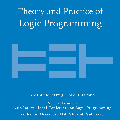A prominent problem in knowledge representation is how to answer queries taking into account also the implicit consequences of an ontology representing domain knowledge. While this problem has been widely studied within the realm of description logic ontologies, it has been surprisingly neglected within the context of vague or imprecise knowledge, particularly from the point of view of mathematical fuzzy logic. In this paper we study the problem of answering conjunctive queries and threshold queries w.r.t. ontologies in fuzzy DL-Lite. Specifically, we show through a rewriting approach that threshold query answering w.r.t. consistent ontologies remains in $AC_0$ in data complexity, but that conjunctive query answering is highly dependent on the selected triangular norm, which has an impact on the underlying semantics. For the idempodent G\"odel t-norm, we provide an effective method based on a reduction to the classical case. This paper is under consideration in Theory and Practice of Logic Programming (TPLP).
翻译:知识代表性的一个突出问题是,如何在解答询问时也考虑到代表领域知识的本体学的隐含后果。虽然这个问题在描述逻辑学的逻辑学范围内得到了广泛研究,但在模糊或不精确的知识中却令人惊讶地被忽略,特别是从数学模糊逻辑的角度来看。在本文中,我们研究了在模糊的DL-Lite中解答连带问题和阈值问题的问题。具体地说,我们通过重写方法显示,在数据复杂性方面,阈值问题解答始终一致的本体学仍然以$AC_0美元为单位,但搭配式解答高度依赖于选定的三角规范,这影响到基本的语义学。关于“G”odel t-norm,我们根据对古典案例的缩减,提供了一种有效的方法。本文在逻辑规划的理论和实践(TPLP)中正在审议。



